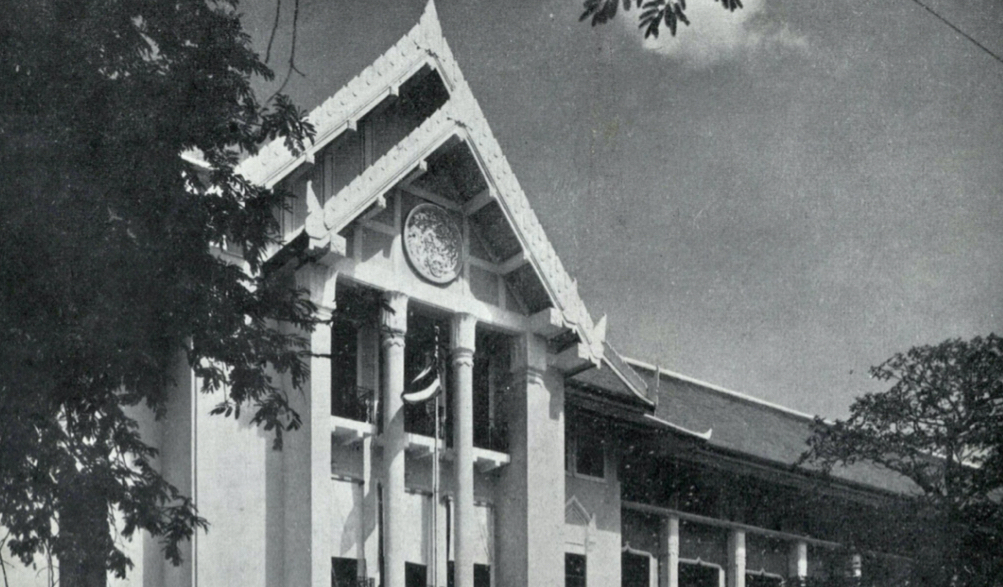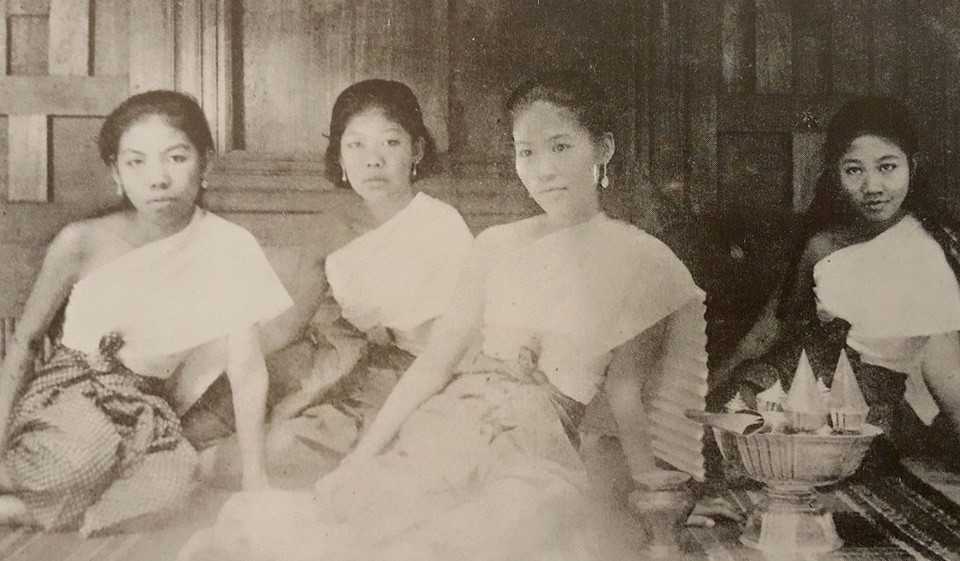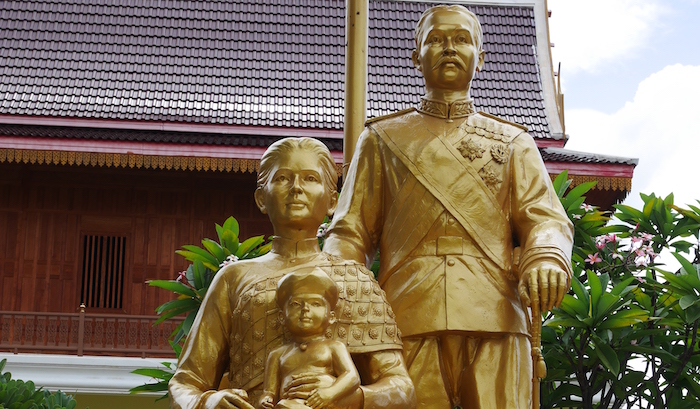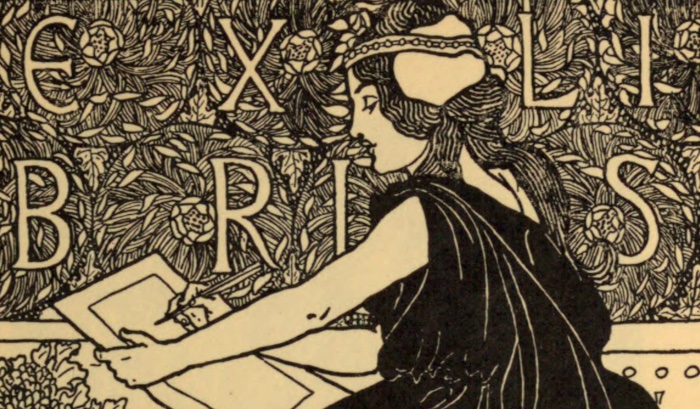Mrs. Rudi Voravan of Washington, D.C. was originally Her Serene Majesty Princess Rudivoravan of Siam (later Thailand). She was the granddaughter of one of Thailand’s most famous kings, was courted by two others, and spent her first twenty-four years living in palaces. Yet she renounced her royal status to marry a commoner. During the Cold War, she moved to Washington, D.C. to work as a broadcaster for Voice of America, one of the primary propaganda arms of the United States. She had connections in dance, journalism, diplomacy, business, government, and royalty on two continents. She makes incredible inspiration for an NPC: someone with a wild and memorable background, a source for all kinds of information, and someone who can point the party unfailingly in the direction of adventure.
This post is brought to you by beloved Patreon backer Robert Nichols. Thanks for helping keep the lights on! If you want to help keep this blog going alongside Robert, head over to the Patreon page – and thank you!

Rudivoravan was born in 1911 to Prince Narathip Phrabhanbongse, himself the son of the reformer King Mongkut (Rama IV, the king from The King and I) and brother to King Rama V. She was Prince Narathip’s twenty-second child and youngest daughter. Narathip was a playwright, poet, and businessman who placed great value on Western education. Consequently, Princess Rudivoravan was sent away to boarding school in England while still quite young. She returned after a few years having lost her Thai (she’d have to relearn her native language) and with a head full of foreign ideas.
Rudivoravan’s favorite sister, Lakshamilavan, married King Rama VI. The marriage began happily enough but soon soured. Rama VI publicly declared he’d wed only a single woman, in the Western style, but when Lakshamilavan was unable to provide him an heir, he married again. While a teenager, Rudivoravan lived with her older sister in “exquisite desolation” in the special palace the king gave to his estranged wife. There they lived an in-between life of immense wealth and luxury in self-imposed exile from the hubbub of the court. Rama VI gave some signals he might be interested in marrying Rudivoravan too, but later withdrew them. When Rama VI died unexpectedly, his successor (Rama VII) similarly sent and later withdrew marriage signals.
During this period, the teenage Rudivoravan developed skills she would rely upon later. She practiced dance and acting. She performed in plays put on by and for the royal court. Her father not only permitted her participation in business (shocking!) but encouraged her to help run his railroad. She was courted by several eligible princes, even though her personality – outspoken, headstrong – was not that of a traditional Thai princess. People ascribed her attitude to her time in England. But Rudivoravan, who knew English customs better than they did, disagreed. She knew her behavior would have been shocking in England too, and that this was simply who she was.

It’s a total aside, but I have to mention this detail from Princess Rudivoravan’s memoirs because it so illustrates the world she was living in. You might have heard of Queen Sunanda Kumariratana, the wife of Rama V, who drowned when her boat capsized and no one dared save her since it was death to touch a queen. Supposedly Rama V’s diary (which I have not seen) recounts something different, saying that her attendants did rescue her, but were unable to revive her. Rudivoravan was born 31 years after this incident, but her memoirs describe the way the story was retold in the palace. She says that there were two versions: one being that no one dared touch the queen, the other that she never surfaced in the first place. But she also intimates a conspiracy: the queen was Rama V’s favorite and she was pregnant. If the child were born male, he would likely have been chosen to succeed Rama V. There was no wave or reason for the boat to capsize (again, Rama V’s diary disagrees), so Rudivoravan suggests a rival queen had Sunanda Kumariratana drowned so that her own son could become Rama VI. I happen to think the version in the King’s diary is more likely, but it certainly illustrates what sort of world the teenage Rudivoravan inhabited.

Image credit: กสิณธรราชโอรส. Released under a CC BY-SA 4.0 license.
At age eighteen, Rudivoravan got engaged. Her fiancé was a prince and an officer in the Thai military. He was also her cousin: their fathers were half-brothers. It was a bad match. Once the honeymoon period was over, they realized they had no chemistry and grew unhappy. They divorced after a few years. This was only the second time a member of this royal dynasty had divorced, so it was quite the scandal! They had to get special permission from the king – a man who, remember, had previously shown some interest in Rudivoravan. Her family turned against her. She had no income, nowhere to live. Her only child, a baby boy, lived with his father the prince, and she saw him little. She found work as a dancing instructor at a school in Bangkok. When the school closed for the summer, an emergency meeting of its board of directors authorized Rudivoravan to keep living there until classes resumed, as she had nowhere else to go.
In her late twenties, Rudivoravan remarried. This time she was actually in love. Her new husband was a functionary in the Ministry of Finance. He had three daughters by a previous marriage. Yet despite their love, royal ladies could not marry commoners. To wed, she would have to abdicate her position as a Serene Majesty and no longer be a princess. This too required special permission from the king (now Rama VIII) and generated yet another round of scandals. Fortunately for the new family, the court had bigger fish to fry as a series of coups and military dictatorships were rocking Thailand. Two baby girls soon followed. The second was born during a British bombing raid against Japanese-occupied Bangkok in WWII. Now there were five children under their roof, with Rudivoravan’s seldom-seen son living scandal-free with his princely father.
Rudivoravan continued working. She opened several businesses (a dance studio, a tailor’s shop, a restaurant), but all failed. She trained as an air traffic controller. But she found real success as a voice actor. In WWII, Bangkok had no way to get new movies, so theaters resumed showing silent pictures they had in their archives. Rudivoravan and one of her brothers (much of her family gradually forgave her indiscretions) would appear in theaters to dub the movies live in Thai. Soon they started making and selling recordings to play alongside the movie.

When the war ended, Rudivoravan’s husband was sent to Washington, D.C. to serve in the Thai legation. She and their family went with him. They were part of the lively diplomatic scene, always going ‘round to parties with foreign dignitaries. She danced in public benefit shows. The wife of the British ambassador gave Rudivoravan’s family a Siamese cat. When a car ran the cat over, children from all the embassies came to their front garden to hold a funeral.
And then Rudivoravan stumbled into radio. Her sister-in-law, the Princess Wan, gave an interview with an ABC radio news affiliate in D.C. about the Red Cross’ efforts in Thailand. Rudivoravan helped with the production. That was her foot in the door. When her husband and their family were recalled to Thailand, she got a job as a Thai government newscaster. She liaised with the U.S. Information Service (operator of Voice of America and other U.S. government broadcasts) and served as translator in their interviews with the Prime Minister.
Radio was a fulfilling career, but it was also a way to get back to America. Rudivoravan wanted to live in a culture freer for women than Thailand and where her children could have a better education. When she got a job offer to serve as a broadcaster for Voice of America in Washington, D.C., Rudivoravan and her husband agreed she should leave him behind and take it – and bring the children with her. Though she faced prejudice as a dark-skinned Asian woman and had to change her name to Mrs. Rudi Voravan, her memoirs give no indication she ever regretted the move.
Rudi Voravan was one of seven broadcasters in the Thai department of Voice of America. She reported on news, culture, and art – all subjects on which she was well-qualified – and all through the American lens. Voice of America was a powerful tool during the Cold War. It broadcast publicly-funded American radio in local languages to areas where such a thing was forbidden (like behind the Iron Curtain) or was hard to access (like rural Thailand). The idea was – and remains – that music, culture, and balanced news reporting is more effective at bringing listeners over to American ideals than overtly propagandistic content. Give ‘em the product of a free press and they’ll start to wonder why Pravda doesn’t sound like that. Voice of America is still on the air in 40 languages, though much of its work is now done through the Internet. My American readers may be unfamiliar with VoA, since it is barred from marketing itself to American audiences. Folks are understandably skeeved out by the idea of the U.S. government propagandizing itself to its own citizens.

At your table, Princess Rudivoravan/Mrs. Rudi Voravan is amazing inspiration for an NPC. Through your campaign’s fictional equivalent of Voice of America, she has access to information on just about any current affairs subject the PCs might want to know about, plus contacts in dance, culture, business, diplomacy, government, and foreign royalty. Whether the party needs a lead to continue pursuing their current adventure or they need an introduction to get them somplace interesting, Rudivoravan is an amazing resource. Plus, her story is phenomenally cool! A fictional NPC based on her real biography will be memorable: someone your players will want to talk to again.
Because Rudivoravan is connected to so many disparate spheres, she’s also a great way to introduce new plot hooks. She can tip the party off to something funny she heard through her journalistic sources, her friends at court, her friends from her diplomat days, her friends in business, and on and on. Whether providing leads or making sense of leads the party already has, a fictional NPC based on Her ex-Serene Majesty, Mrs. Rudi Voravan slots neatly into just about any campaign.

Looking for material for your game tonight? My back catalog has hundreds of great posts, all searchable and filterable so you can find something from real history or folklore that fits exactly what you need! Posts older than a year are behind a very cheap paywall – only $2/month!
Source: The Treasured One: The Story of Rudivoravan, Princess of Siam, as Told by Her to Ruth Adams Knight (1957)






